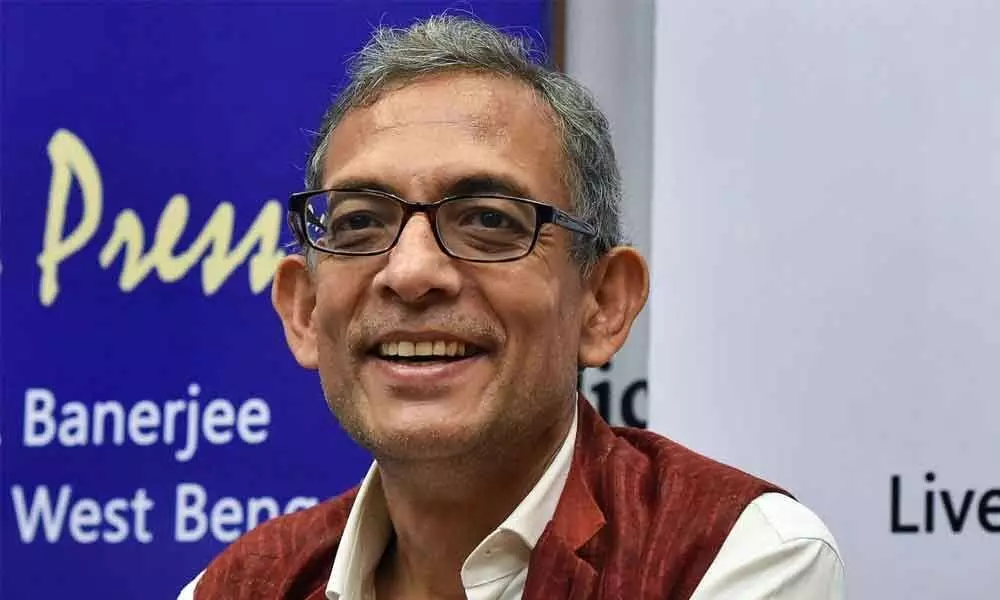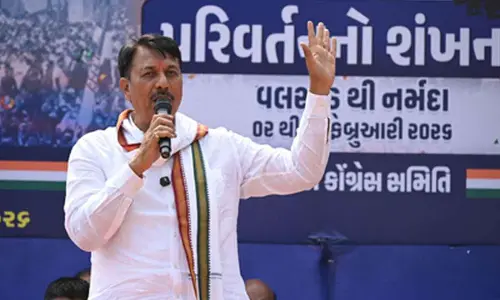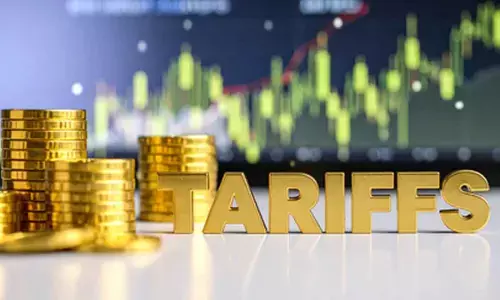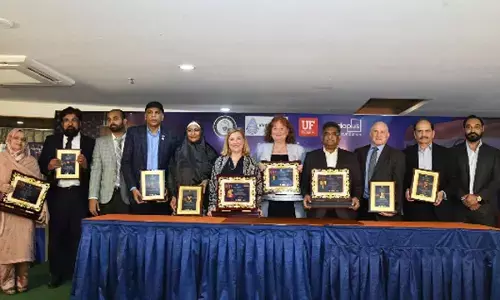Banerjee bats for govt stake cut in PSU banks

Terming the current banking crisis in the country as frightening, Nobel laureate Abhijit Banerjee on Tuesday called for aggressive policy changes to deal with the situation.
New Delhi: Terming the current banking crisis in the country as frightening, Nobel laureate Abhijit Banerjee on Tuesday called for aggressive policy changes to deal with the situation.
He said the government should reduce its stake in public sector banks to below 50 per cent so that they are out of the ambit of Central Vigilance Commission (CVC).
The fear of CVC acts as dampener in decision making in the banking sector, Banerjee said. "The current banking crisis is frightening, and we should worry about it a lot because we see a repeated pattern.
We should be vigilant about this. I think we need important and aggressive changes," he said at interaction with the media organised by Liver Foundation.
Elaborating on changes required, he said, "We should seriously think of reducing equity share of government in public sector banks below 50 per cent so that the Central Vigilance Commission does not regulate (PSU banks)".
Prodded further, Banerjee said public sector banks were paralysed by "fear" of their decisions being investigated by the CVC on account of the government holding majority stake in them.
"It leads to hiding of defaults, which then creates problems. So, I want the government to have less equity in banks so that the fear psychosis in banking sector is eliminated," he said.
The banking system has been afflicted by the scourge of high NPAs (non-performing assets) for nearly five years now, which has led to net-worth erosion and discovery of scams in the sector, with the Punjab and Maharashtra Cooperative Bank (PMC) being the new addition.
Earlier in August, CVC had constituted Advisory Board for Banking Frauds (ABBF) headed by former Vigilance Commissioner T M Bhasin to examine bank fraud over Rs 50 crore and recommend action.
Earlier in the day, Banerjee met Prime Minister Narendra Modi. The meeting came on the back of Banerjee, along with fellow economists Esther Duflo and Michael Kremer, being awarded the Nobel Prize in economics for 2019 last week for their use of an experimental approach to alleviating global poverty.
While the Mumbai-born professor of economics at the Massachusetts Institute of Technology has been lauded for receiving the prize, comments by Banerjee in the past, as well as in recent days, about the Modi government's policies have dominated headlines.














